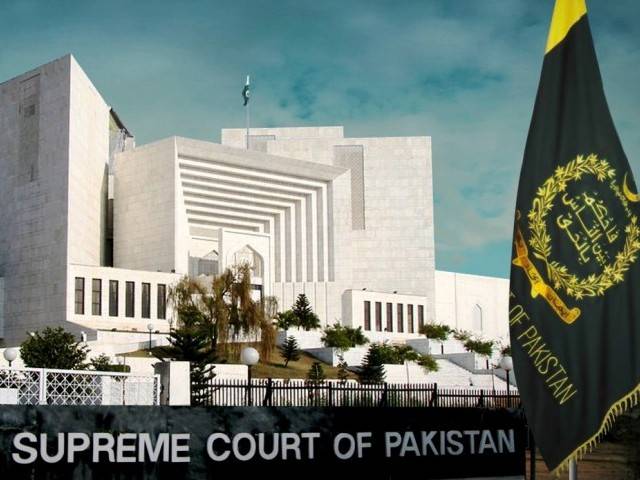ISLAMABAD - The Supreme Court will give its verdict tomorrow (Monday) on appeals against the death sentences awarded by the military courts.
A five-member bench, headed by Chief Justice Anwar Zaheer Jamali, had reserved judgment on 16 appeals on June 20 after hearing them for two months.
Bacha Laiq, Anwar Bibi, Ali ur Rehman, Nek Maro, Said Zaman Khan, Sakhi Muhammad, Sher Alam, Mashooqa Bibi, Ajab Gul, Khan Afsar Khan, Javed Iqbal Ghauri, Mohibullah, Fazal Ghafar, Mst Zarba Khelaw, Aqsan Mehboob, Hafiz Muhammad Sadiq had filed appeals on behalf of their relatives.
Advocates Asma Jehangir, Abdul Latif Afridi, Khalid Anwar Afridi, Naseemullah Khan, Ahmed Nawaz Chaudhry, Malik Muhammad Akram, Salahuddin Mengal and Ahmed Raza Kasuri had represented the family members of the convicts.
The counsels had argued that fair trial was not accorded as the military courts do not have pre-trial record of the cases and that the convicts were not given opportunity to engage legal counsels of their choice under section 23 of the Pakistan Army Act 1952.
They contended that according to the record the authorities arrested the convicted persons much prior to the establishment of the military courts.
They were taken into custody under Action in Aid of Civil Power Regulations and when the military courts were set up after the 21st Constitutional Amendment and Pakistan Army (Amendment) Act 2015 then the federal government referred their cases to the military courts.
Additional Advocate General Attique Shah representing the federation said that there was no violation of law and rules. He said the persons were handed to military courts after the 21s Amendment and Pakistan Army (Amendment) Act 2015, adding the federal government had referred their cases to military courts.
Asma Jehangir had contended that Action in Aid of Civil Power (AACP) Regulations had been before this apex court and still not decided.
There were 32 petitions filed against the law. She said if the top court later decides that the AACP is ultra vires then by that time the convicts would have gone out of this world.
She had argued that under 21st Amendment Army Act, Naval Act, and Air Force Act were protected but not the Action in Aid Regulations under that majority of the convicts were initially arrested.
Asma said how the federal government selected cases of a few persons from the internment centres and why not referred other cases to the military courts, thus it was violation of the Article 25 of Constitution, which talks about equality. She said Daniel Pearl assassin’s case is still pending but a 14-year-boy was handed over death sentence.
“People might have arrested under the Action in Aid of Civil Power legally but they were tried by military courts just to hide illegality of the officers,” she said. There is violation of Article 10A and Rules 86, 87 of PAA 1954. Article 10A came into being after a long struggle and many negotiations, she added.






